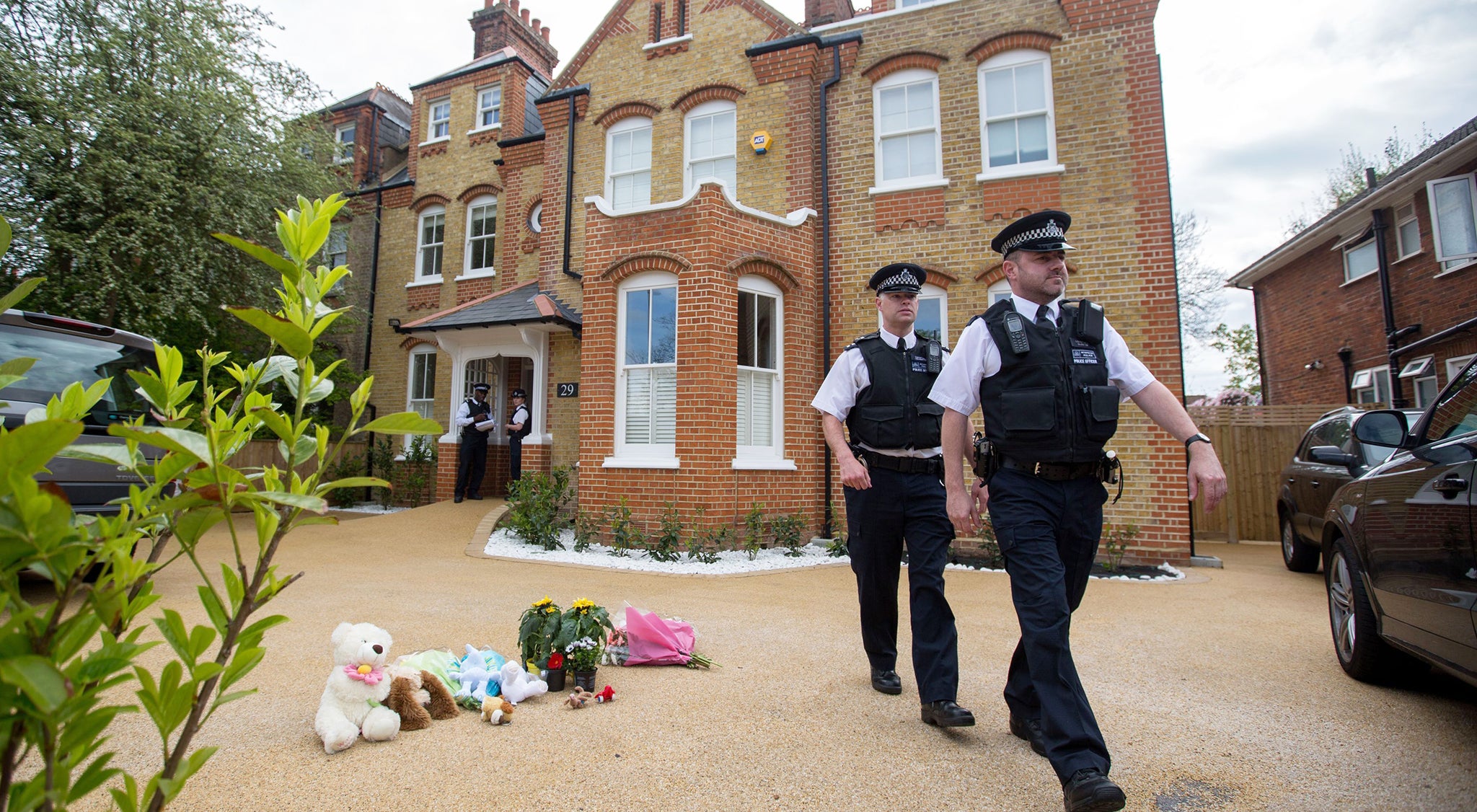Tania Clarence: Middle class status may have contributed to authorities failing to intervene before mother smothered her three children
A serious case review found that the threshold for formal legal action on child protection grounds had been reached at least a year before 43-year-old Tania Clarence's manslaughter

A family’s “affluent, middle-class status” may have contributed to a failure to legally intervene before the mother smothered her three severely disabled children, a report found yesterday.
A serious case review found that the threshold for formal legal action on child protection grounds had been reached at least a year before 43-year-old Tania Clarence killed her four-year-old daughter, Olivia, and three-year-old twin sons, Max and Ben, at the £1.4m family home in New Malden, south west London, in April 2014.
The investigation found that Clarence, who was last year detained under a hospital order after admitting manslaughter by diminished responsibility, had been “overwhelmed” as early as 2010 with the number of appointments required for her children and never had a full night’s sleep. Doctors recognised it was likely that Clarence was suffering from depression but said she had repeatedly refused assistance.
Experts ruled that the deaths “were not predictable nor preventable” but they found that some of the 60 professionals involved in the family’s care over a four-year period failed to act on concerns that should have led to legal intervention.
The review, commissioned by the Kingston Local Safeguarding Children Board (KLSC), said that the family’s “assertiveness” and relatively well-off status “posed [a] challenge” to those charged with their care.
Clarence, who gave up her job as a graphic designer to care for her offspring, and her husband Gary, an investment banker, had disagreed with doctors about aspects of the treatment of their children, emphasising that they wanted priority to be given to their quality of life rather than submitting them to medical procedures that may have lengthened their lives.
The report said that as a result medical staff and social workers had not been used to the “level of questioning” they received from the couple, adding: “This was particularly the case with the father who as a lawyer and a company director was experienced as powerful.”
While the couple’s “class, background and culture” did not change the overall approach of the professionals, it may have played a role in the decision not to begin legal action over concerns about the children’s medical care in 2013, the review found.
It said: “There has been consideration whether the family’s social status led to a different safeguarding response. There is no evidence that this occurred, but [it] may have contributed to the cautious approach in moving into child protection processes.”
All three children had been diagnosed with spinal muscular atrophy type 2, a life-shortening condition that causes spinal complications and muscle weakness, in turn causing problems with mobility, eating and breathing.
In 2011, Clarence had requested that her children be designated “Do Not Resuscitate” if they were in need on-going treatment and expressed the family’s view that medically invasive treatment was cruel.
The mother declined offers of counselling despite her GP remarking on “her crying, her flatness and her avoidance of eye contact” and by mid-2013 some professionals involved with the family’s care reported escalating concerns, including Clarence’s “non-compliance and interference with medical equipment”.
The report said: “The concerns during this period, in the view of the authors, reached the threshold for child protection intervention, but this did not happen despite references to legal intervention.”
The legal action did not proceed after doctors and social workers felt they had made an important breakthrough just a few weeks before the killings. Mr Clarence agreed to allow Olivia to have a stomach operation and was also considering allowing spinal surgery, which medical staff believed was necessary.
The children were smothered while Mr Clarence was abroad to visit relatives in South Africa.
The review, which made 14 recommendations for improved practice, said at the heart of the case had lain a common professional dilemma of whether to focus on supporting the family or opt for “more assertive intervention”.
Edina Carmi, co-author of the report, said: “I think in this case what happened was it was a wrong decision. The wrong decision was to wait for there to be a consensus and agreement… It wasn’t a case of any one individual or one professional’s fault.”
Subscribe to Independent Premium to bookmark this article
Want to bookmark your favourite articles and stories to read or reference later? Start your Independent Premium subscription today.
